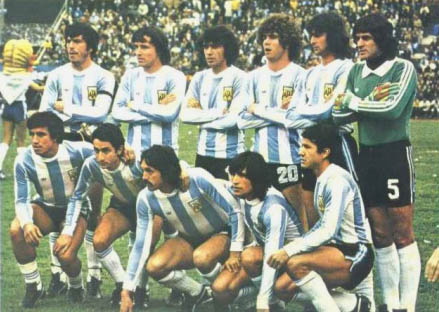We’ve all been at a party or even when a raffle’s been done and been suspicious when the person doing the draw happens to pull out the ticket of their husband/wive/lover/friend. You have a strong suspicion that something dodgy’s going on but there’s not much you can do about it.
Of course it’s annoying because you had your heart set on that hamper containing three bottle of red wine and a wheel of cheese, but shouting something out’s only going to ruin your cousin’s wedding so you keep your suspicions to yourself.
How much worse is it, then, when it’s a football match? Thousands if not millions of people leave and breathe every moment of a football match, so to discover that the result was decided before a ball was even kicked is a gut-wrenching experience for many.
Yet the history of match-fixing in football is a tale almost as old as the game itself. We’ll have a quick look at what it’s all about, what some of the more high profile cases of it have been over the years and what it all means for the future of the game.
The History Of English Match Fixing

As long as people have had something to gain or lose, corruption has been known to play its part in any final result. Between 1893 and 1898 promotion and relegation between the divisions in the Football League wasn’t decided by where any given team finished in the league as it is nowadays. Instead a pre-cursor of the modern idea of ‘play-offs’ was used, known as ‘Test Matches’ as a nod towards the more popular game of Cricket.
To being with the Test Matches were, as the play-offs are today, direct games between the teams leading to a final. But for two years from 1896 a round-robin format was introduced, meaning the teams played each other in what was essentially a mini-league. In 1898 Stoke and Burnley went into their final Test Match game against each knowing that the earlier results of the new round-robin system meant a draw would see them both gain promotion.
Unsurprisingly the match ended in a 0-0 draw, with the Athletic News scathing in its criticism of the blatant collusion that the two teams made very little attempt to hide. A match report after the incident stated, “The teams could have done without goalkeepers, so anxious were the forwards not to score”. It caused the Football League to first expand the First Division to eighteen clubs in order to allow all four clubs involved in the Test Matches to have the opportunity of promotion, then they abandoned it all together.
In 1915 a game between Liverpool and Manchester United caused some suspicion when United won 2-0 after a lacklustre performance from the Merseyside club. After the game it was alleged that a large amount of money had been placed on that very scoreline with odds of 7/1. The Football Association investigated and discovered that players from both sides had been in on the scam, with seven footballers banned from the game for life as a result, though it did help United avoid relegation. Such a similar collusion seems unlikely from the two rivals nowadays!
High Profile Match Fixing Incidents

In 1978 Argentina were hosting the World Cup and went into the last Group B game against Peru knowing that they’d have to win by at least four clear goals if they were to progress to the final at the expense of Brazil. The hosts were 2-0 up at half-time, with Peru’s defence seeming to crumble during the second-half, despite having a reputation as one of the best defences in the competition.
The match ended in a 6-0 rout, with video footage showing the Peru goalkeeper not even bothering to make a save and the defenders standing around with their hands on their hips as Argentina’s players poured forward to score. Remarkably FIFA took no action after the game, deciding that all seemed to be above board. And how did Argentina know how many goals they needed to score in order to qualify? Their match was delayed until after Brazil’s game was over do to mysterious ‘security concerns’…
One of the most high-profile incidents in modern times, though, comes from Italy in 2006. It’s a complicated story that we’ll try to boil down as simply as we can. In essence it involved the top clubs in Italy working together with the head of the Italian Referee’s Association to ensure the selection of preferred officials for their matches.
The obviously result of this, of course, was the match referees then made decisions that favoured the side who had ‘insisted’ on their appointment, meaning that they won more games than they lost. The aftermath saw Juventus, one of the main perpetrators of the crime, stripped of their Serie A title win and relegated to Serie B for the following season. Fiorentina and Lazio were also relegated, whilst AC Milan were allowed to remain in Serie A but began the season with a fifteen point deficit.
Fixing The Future
 The reality is that as long as there’s so much money in football, less reputable people will be prone to corruption.
The reality is that as long as there’s so much money in football, less reputable people will be prone to corruption.
It’s hoped that the more overt, obvious attempts at fixing things demonstrated by Manchester United, Liverpool, Stoke and Burnley are a thing of the past, but the more the game develops and the more betting options people are presented with, the more likely it will be that the crooks will find a way to take advantage.
In recent times betting syndicates in places like China and Singapore have been discovered to have placed large amounts of money on the amount of throw-ins that take place in a game, for example. Players have been banned from betting on games they’re taking part in, but don’t assume that means that they won’t find ways to flout such rules if the rewards are worth the risk.
Monitoring betting activity is the chief indicator to the authorities that something isn’t quite right. Whether they follow up on that is a different matter altogether…

